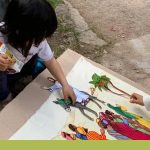Roma-Projects in Ukraine
A full 95% of the Roma people cannot read or write. Nearly a quarter of the Roma living in Ukraine report having no education at all. By the time girls are 13 or 14, many are already married or pregnant. Gaining access to education and skills training, feeding their families, and keeping warm during the harsh Ukrainian winters are all challenges.
The Roma in Ukraine: hardly any schooling or work
Almost two-thirds of Roma are unemployed, while 22% work only part-time, which means many families suffer from severe food shortages and malnutrition. The picture that these numbers paint is a grim one. But thankfully, the story doesn’t end there. For years, Orphan’s Promise has worked alongside the Roma community to provide education and discipleship programs. (Today Orphan’s Promise is part of the CBN humanitarian aid organization Operation Blessing.) We’ve distributed practical necessities like heaters, warm shoes and winter clothing, as well as a community bath house with running water. Still, we wanted to do more.
The SEED project
We wanted to help the Roma community achieve greater security via long-term self-sufficiency. The means of doing so was in the very dirt we were standing on. This rich, dark, fertile soil is the reason Ukraine is known as the “breadbasket of Europe.” With the Roma people already living on hundreds of acres of this bountiful soil, the solution was right under our feet. Creating an agriculture program was an opportunity to tap into this valuable natural resource and empower the community to provide for their children, plan for the future, and break free from generational poverty. We called it the SEED Project— Something to Eat Every Day. The program teaches farming and agriculture, nutrition, business education, and other practical skills.
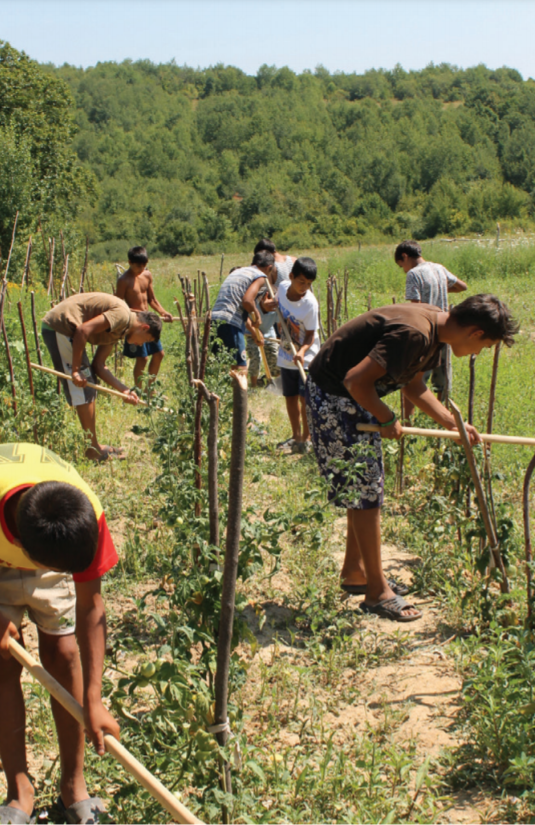
By implementing customized training and instruction, we are able to guide the community through the full cycle—from planting to harvest to preservation and storage. This year, more than 5,000 beneficiaries will participate in our SEED programs throughout Ukraine. As a result, there are now plenty of fresh, organic fruits and vegetables, as well as chickens, rabbits, cows, and pigs that provide milk, eggs and meat, both for eating and to generate income. Perhaps most importantly, teaching families how to can fruits and vegetables and cure meat means they can now preserve their food sources for the long winter. This provides critical food security. Having this excess stored away for the future can be lifechanging; parents no longer need despair over how they’ll feed their children during times of scarcity.
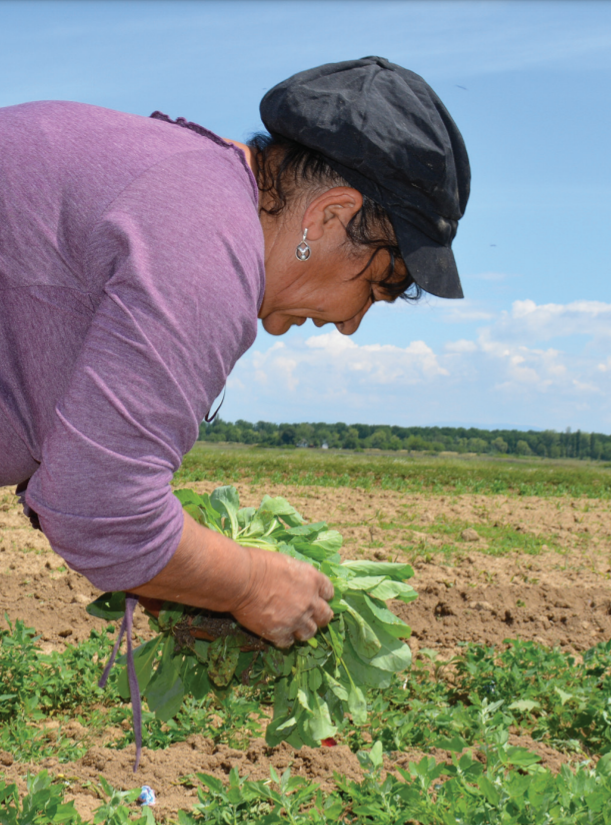
Breaking the cycle of poverty
Over the past five years, we’ve been able to transition these families from simply growing food for their own needs to a microenterprise model. For many of the Roma people, the program has provided an opportunity to earn a stable income for the first time and to provide for their families. The goal is for the SEED project to eventually enable the Roma to become completely self-sufficient. Perhaps the best part is seeing the generational cycle of poverty broken, as families are shown an avenue where hard work is rewarded and they are able to create their own futures, full of possibilities.
Yegor* is just a child, but he’s already well acquainted with how difficult life can be when you don’t know where your next meal is coming from. It’s a gut-twisting kind of insecurity, an anxiety no child should have to endure. Previously, Yegor’s dad earned money on construction sites around Europe. But when the global coronavirus pandemic halted business and closed borders, the income immediately dried up. There were no more jobs, and Yegor’s family was left without a livelihood. That’s when—as part of the SEED project—Orphan’s Promise brought seeds to the Roma community where Yegor lives. After learning as much as he could about agriculture and farming, Yegor is now one of the most hardworking and responsible gardeners in the program! You should see the smile that lights up his face when he shows off his rows of well-tended vegetables. He even has his own little plot next to his family’s home. Already, the family has been able to gather a bountiful harvest of cucumbers, zucchini, tomatoes, potatoes, and other nutritious foods! And this is just the beginning. We aren’t just providing tools and training for families to learn agricultural skills; we’re also teaching them about responsibility, a sound work ethic, and pride—while helping them put food on the table and money in their pockets. When we provide opportunities for families to break cycles of poverty, illiteracy and homelessness, we see hope rush in and lift up entire communities. The community-wide transformation that follows is truly incredible to witness. A stigma surrounds the Roma community, one that’s typical for nomadic communities.
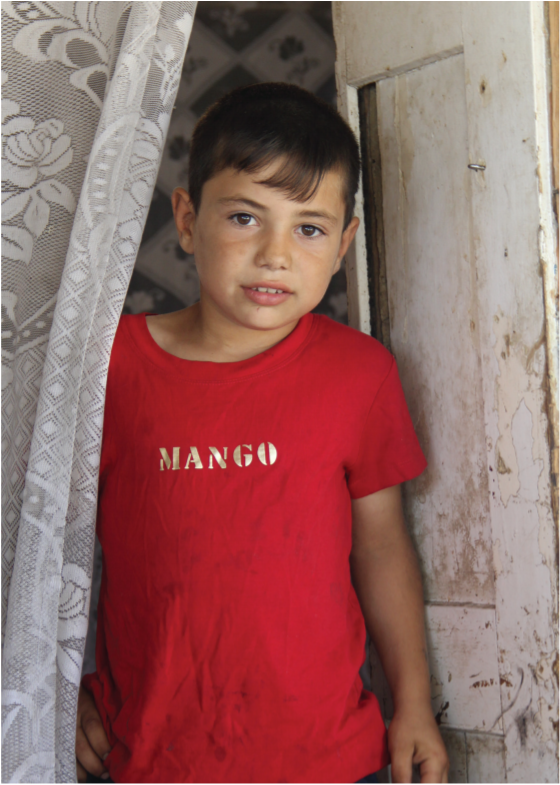
They are portrayed as lazy, untrustworthy, dishonest. By equipping them with the tools and training they need to provide for their families and enjoy the fruits of their labor, we can begin to chip away at that prejudice. The effect on the self-esteem of these families is huge. They believe in themselves again and feel like a valuable, contributing part of society. That is something incredible to see. With the outbreak of COVID-19, this transformation has become even more critical. Before the pandemic, there were always options to at least try to get outside work or part-time jobs, but now that isn’t possible. Borders are closed and businesses are shuttered. Having an independent, self-contained way to feed their families and earn a living is essential to these communities’ survival. It has been an interesting change to witness because, while other communities across Ukraine are struggling with store closures, lost jobs, and uncertain paychecks, the Roma communities—which have typically been the poorest—are able to sustain themselves through the SEED program. They are able to feed themselves, their children, and their neighbors. With every harvest, they are able to continue to prepare for the future. Some might simply call it farming. We call it hope.
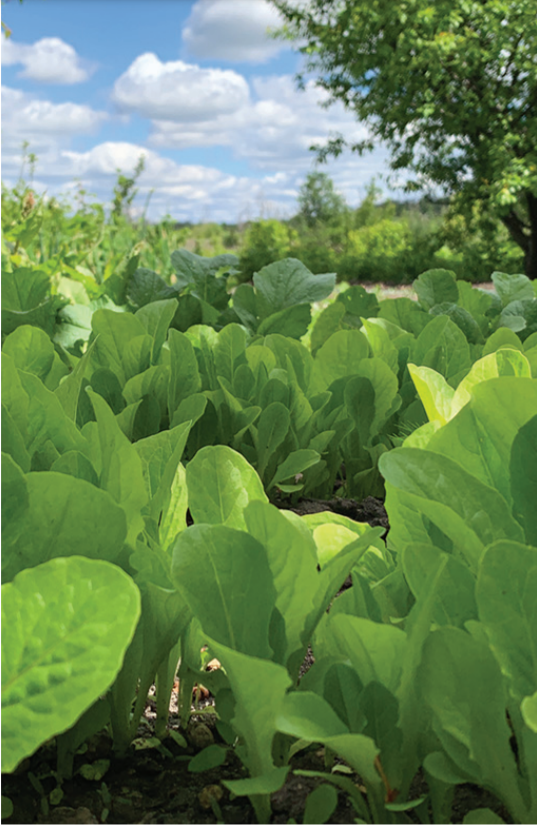
*Name is changed
The Romani people, commonly known as Roma, are a nomadic Indo-Aryan ethnic minority living in Europe. In Ukraine, the Council of Europe estimates that there are approximately 260,000 Roma out of a total population of 41.8 million. Due to their nomadic heritage, Roma communities often live in informal, temporary settlements or campsites and, accordingly, often experience extreme poverty.
If you have it in your heart to support our relief projects, please consider supporting CBN with your donation.
How you can help




